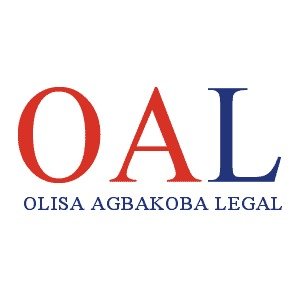Best Bankruptcy & Debt Lawyers in Apapa
Share your needs with us, get contacted by law firms.
Free. Takes 2 min.
List of the best lawyers in Apapa, Nigeria
About Bankruptcy & Debt Law in Apapa, Nigeria
Bankruptcy and debt law in Apapa, Nigeria, falls under the broader legal framework of insolvency in Nigeria, which provides avenues for individuals and businesses facing financial distress. The purpose of these laws is to offer protection to debtors struggling with insolvency while ensuring creditors can recover debts in a structured manner. Apapa, being a key commercial hub, witnesses a significant number of business transactions, making understanding bankruptcy and debt relief critical for both individuals and businesses.
Why You May Need a Lawyer
Legal counsel is often necessary in situations involving complex financial challenges. Individuals and businesses may require a lawyer when:
Your debts exceed your ability to pay, and creditors are threatening legal action.
You are facing foreclosure, repossession, or garnishment of wages.
You want to negotiate debt restructuring or settlement with creditors.
You need guidance on filing for bankruptcy or understanding its implications.
There is a requirement for legal representation in court proceedings related to insolvency.
Local Laws Overview
The key legal framework governing bankruptcy and debt in Nigeria is the Companies and Allied Matters Act (CAMA) and the Bankruptcy Act. Here are some aspects particularly relevant to Apapa:
The Bankruptcy Act provides the process for declaring insolvency, which applies to both individuals and corporate entities.
CAMA outlines the procedures for company liquidation and receivership, which may be initiated by creditors under certain conditions.
Debt recovery processes might involve negotiation, court action, or other legal proceedings.
The laws also provide for restructuring through schemes that can help businesses recover.
Frequently Asked Questions
What qualifies as bankruptcy in Nigeria?
Bankruptcy occurs when an individual or company cannot meet their debt obligations and files for a declaration of insolvency under the Bankruptcy Act or CAMA.
How can I file for bankruptcy?
To file for bankruptcy in Nigeria, you usually need to fill out the relevant forms and submit them to the court, after which a bankruptcy order may be made following due process.
Can all types of debts be discharged in bankruptcy?
Not all debts can be discharged. Certain obligations, like some tax liabilities, alimony, and fraudulent debts, may persist despite bankruptcy.
What happens during liquidation?
During liquidation, a company’s assets are sold to repay creditors. This can be initiated voluntarily by the company or compulsory by the court.
Is debt restructuring an option?
Yes, debt restructuring is a viable option where new terms are negotiated with creditors, often involving extended repayment periods or reduced interest rates.
How does the court protect me from creditors during bankruptcy?
Upon filing for bankruptcy, automatic stays are typically placed, preventing creditors from initiating or continuing collection efforts against you.
How can a lawyer assist me with debt negotiation?
A lawyer can represent your interests in negotiations, help draft agreements, and ensure that any settlement respects your rights under the law.
What should I bring to a consultation with a bankruptcy lawyer?
Bring financial documents such as income statements, debt records, and any correspondence with creditors.
Will bankruptcy affect my credit score?
Yes, declaring bankruptcy typically has a negative impact on your credit score, but it may also offer an opportunity for a fresh financial start.
What alternatives exist to bankruptcy?
Alternatives include debt consolidation, informal arrangements with creditors, and exploring company voluntary arrangements in business contexts.
Additional Resources
Individuals seeking more information can refer to resources at:
The Nigerian Bar Association - Apapa Branch, for legal aid and referrals.
The Small & Medium Enterprises Development Agency of Nigeria (SMEDAN), which may offer support for distressed businesses.
The Corporate Affairs Commission (CAC) for guidance on company insolvency matters.
Consumer Protection Council which can assist individuals facing unfair debt collection practices.
Next Steps
If you need legal assistance, consider the following steps:
Seek a consultation with a lawyer specializing in bankruptcy and insolvency law. Prepare relevant documents including financial statements, debt correspondence, and any legal notices you’ve received.
Research and understand your options, including bankruptcy, debt restructuring, or alternative repayment plans.
Contact local legal aid societies or associations if cost concerns are an issue. They may be able to connect you with affordable legal assistance.
Remember, timely intervention can often alleviate the financial pressure and provide viable solutions to debt-related challenges.
Lawzana helps you find the best lawyers and law firms in Apapa through a curated and pre-screened list of qualified legal professionals. Our platform offers rankings and detailed profiles of attorneys and law firms, allowing you to compare based on practice areas, including Bankruptcy & Debt, experience, and client feedback.
Each profile includes a description of the firm's areas of practice, client reviews, team members and partners, year of establishment, spoken languages, office locations, contact information, social media presence, and any published articles or resources. Most firms on our platform speak English and are experienced in both local and international legal matters.
Get a quote from top-rated law firms in Apapa, Nigeria — quickly, securely, and without unnecessary hassle.
Disclaimer:
The information provided on this page is for general informational purposes only and does not constitute legal advice. While we strive to ensure the accuracy and relevance of the content, legal information may change over time, and interpretations of the law can vary. You should always consult with a qualified legal professional for advice specific to your situation.
We disclaim all liability for actions taken or not taken based on the content of this page. If you believe any information is incorrect or outdated, please contact us, and we will review and update it where appropriate.
Browse bankruptcy & debt law firms by service in Apapa, Nigeria
Apapa, Nigeria Attorneys in related practice areas.










